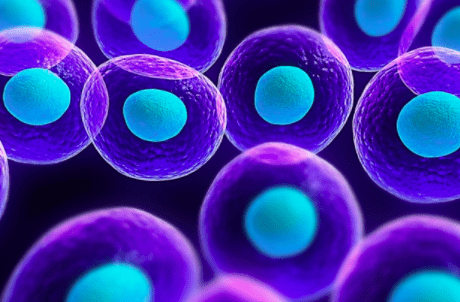Chances are you’ve heard about the stem cell advancements experts are making in the world of regenerative medicine. For conditions ranging from musculoskeletal injuries to autoimmune conditions, stem cells are showing promise in terms of promoting the body’s healing capacity, regenerating tissue to replace that which has been damaged by illness or disease, and managing or altogether alleviating symptoms. But what exactly are stem cells, and what is it that they do? Here are some Stem Cell facts.
What Are Stem Cells?
Stem cells act as the basis of development in all living things, including humans, animals, and even plants. In humans, they are formed at various points of life and in specific parts of the body. Embryonic stem cells, for example, are only present at the earliest stage of development. At just three to five days of age, an embryo is made up of pluripotent stem cells, which have the capacity to divide into other stem cells or transform into any cell type in the body. These are not cells in which today’s Regenerative Medicine is studying or practicing based on the controversy behind them.
On the other hand, tissue-specific (adult) stem cells emerge during fetal development and stay within the body throughout the course of life. They’re found in bone marrow, adipose (fat), and umbilical cord tissue (UCT), and they can give rise to various types of cells. For instance, research suggests stem cells derived from bone marrow could create heart muscle cells.
What Do Stem Cells Do?
As mentioned above, there are two characteristics which make stem cells so remarkable:
· Self-renewal, or the ability to make copies of themselves
· Differentiation, or the ability to develop into specialized cells
Recently, experts have been leveraging the capabilities of stem cells in regenerative medicine applications to activate a healing response in injured, dysfunctional, or diseased tissue using stem cells. In addition to their abilities to repair and regenerate, stem cells also have secretory benefits known as exosomes, which are critical in the communication between cells. Mesenchymal stem cells, in particular, have immune-modulating and anti-inflammatory effects and a good proliferation rate, making them powerful candidates for tissue regeneration.
Thanks to these incredible properties, stem cells are being leveraged to heal tissue, control symptoms, and deliver rejuvenating effects for a broad range of conditions. Stem cell therapy is being used as an alternative treatment in neurodegenerative conditions such as multiple sclerosis and Parkinson’s disease, for instance, as well as orthopedic issues and injuries, autoimmune disorders, and general wellness and cosmetic concerns. Although it isn’t a cure-all, stem cell treatment does hold enormous potential for improving symptoms and outcomes in patients for a better quality of life.
Contact us today for a free consultation!


 St. Petersburg, Florida
St. Petersburg, Florida
